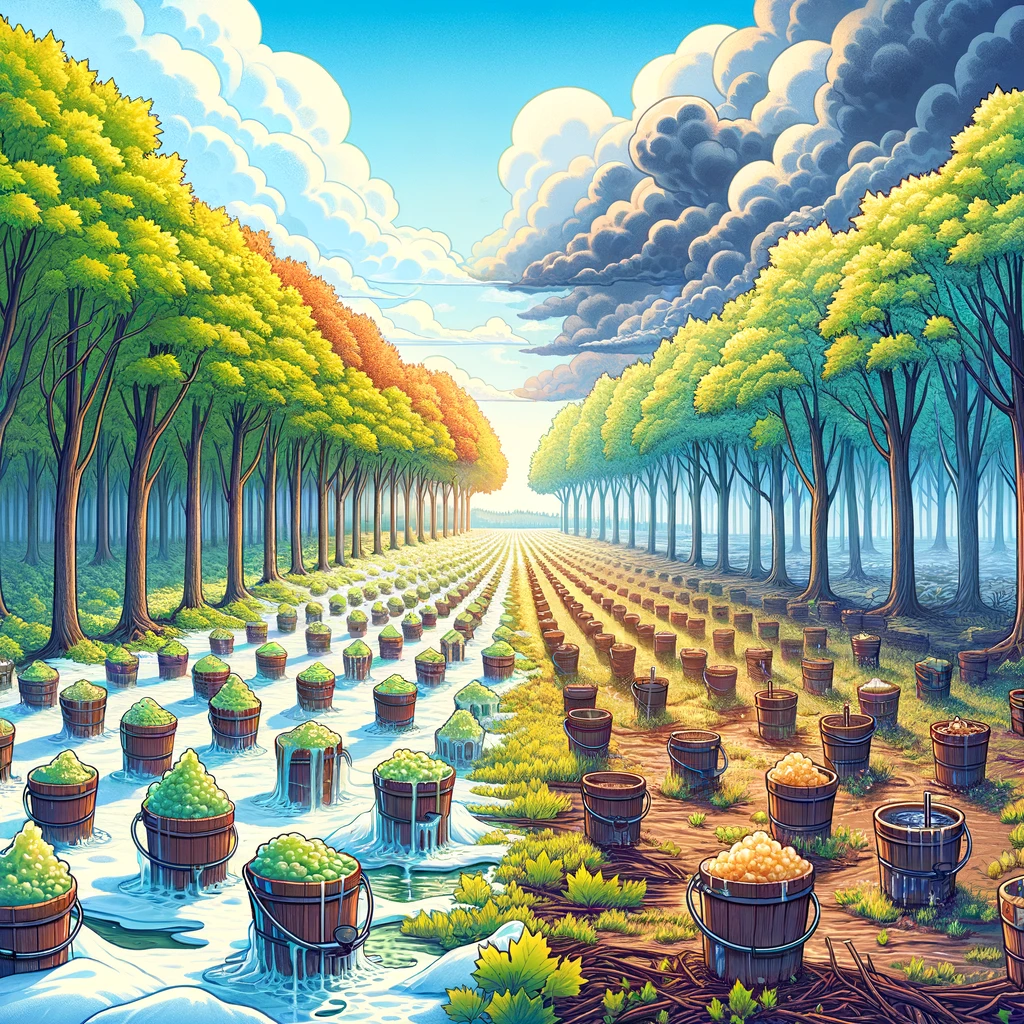
In the vast, verdant forests of Canada, a quiet crisis is unfolding that threatens a cherished tradition and a vital industry. Maple syrup, the iconic, golden nectar, synonymous with Canadian heritage and culinary pride, is facing an unprecedented decline. For the first time in five years, production levels have plummeted, leaving reserves at a concerning low and casting a shadow over the future of this sweet industry. This decline is not just a blow to national identity; it’s a stark indicator of the intricate challenges at the intersection of climate change, agriculture, and economics.
The process of maple syrup production, a labor of love and patience, is finely attuned to the rhythms of nature. Each spring, as the snow begins to thaw, maple farmers tap into the sap of sugar maple trees, initiating a delicate process that transforms this sap into syrup. However, this tradition is under threat. The culprit? An increasingly unpredictable climate. The precise weather conditions required for sap flow—a cycle of freezing nights and thawing days—are becoming less reliable, disrupting sap collection and syrup production. This volatility speaks to the broader, more distressing impacts of climate change on agriculture, highlighting the vulnerability of practices deeply rooted in the seasonal patterns of the natural world.
The economic implications of this decline are profound. Maple syrup is not just a breakfast staple; it’s a significant economic driver in rural communities across Canada, supporting thousands of livelihoods. As production wanes, the ripple effects are felt across the industry, from producers to consumers. Prices have surged, reflecting the scarcity of supply and the growing costs of adaptation and resilience measures among producers. This economic strain tests the sustainability of small-scale farms and challenges the industry to innovate while maintaining the integrity and quality of this iconic product.
The decline in maple syrup production also poses questions about food security and the resilience of agricultural systems to climate change. As global temperatures rise, the impacts on crop production, including maple syrup, underscore the need for comprehensive strategies to mitigate climate risks. This includes research into more resilient maple tree varieties, advancements in tapping technology, and broader agricultural practices that can withstand the vagaries of climate change.
Amidst these challenges, there is a glimmer of hope and a call to action. The maple syrup decline has sparked a renewed emphasis on environmental stewardship, sustainable agriculture, and climate action. Producers, researchers, and policymakers are coming together to safeguard this industry, exploring innovative practices that can secure the future of maple syrup production against the backdrop of a changing climate.
The decline in Canada’s maple syrup production is more than a statistical anomaly; it’s a reflection of the broader environmental and economic challenges facing our world today. It’s a reminder of the need for urgent action to combat climate change, protect agricultural traditions, and ensure the sustainability of industries that are emblematic of national heritage. As we navigate these sour times, the path forward is clear: a commitment to resilience, innovation, and a sustainable future, ensuring that this sweet tradition endures for generations to come.